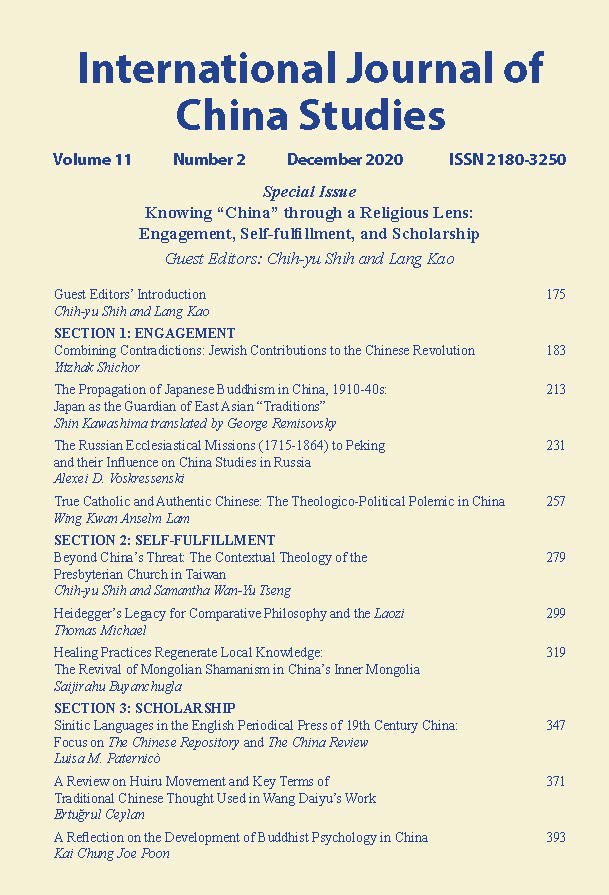Heidegger's Legacy for Comparative Philosophy and the Laozi
Keywords:
Laozi, Martin Heidegger, Daoism, Ontology, PhenomenologyAbstract
The ancient text known as the Laozi Daodejing is a treasure of Chinese culture and civilization, and it also represents one of the world classics of religion and philosophy. However, it is also a notoriously difficult work to interpret, and modern scholars have exerted tremendous energy in attempting to make an overall sense of just what the text is all about: is it religious or philosophical? Is it a synthetically coherent work with a unified perspective, or an anthology of disparate ideas compiled from multiple sources? Is its
main character, the anonymous sage, a master of bodily techniques living in mountain reclusion, or an enlightened ruler who manipulates the Dao from his royal throne to order an empire? The famous German philosopher, Martin Heidegger (1889-1976), himself dabbled in the thought of the Laozi, and in doing so he opened a novel phenomenological reading of the text that rejected the metaphysics traditionally read into it, but his approach had little impact until the discovery of several excavated versions of the ancient manuscript that appear to confirm his phenomenological interpretation. Since then, a growing number of contemporary scholars are
accepting, absorbing, and furthering this phenomenological reading of the Laozi, allowing them to make great progress in exploring its religious and philosophical foundations that have deeply influenced Chinese culture and society for more than two thousand years. This paper examines this legacy bequeathed by Heidegger to Laozi studies as well as comparative philosophy more generally.

